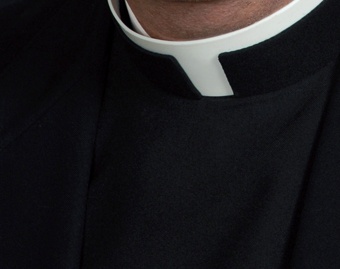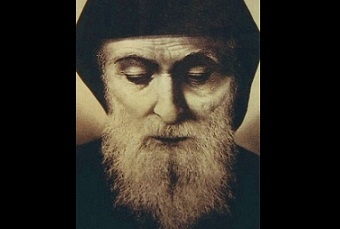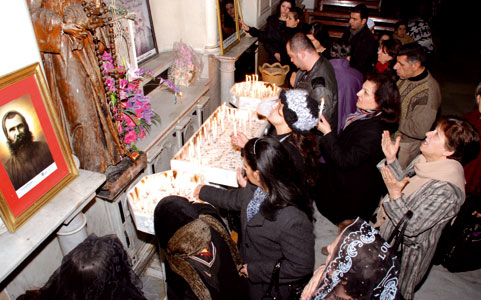|
Member's Blog
Blogs
Written by News
Wednesday, 1 August 2012 17:24
The Hariri Political Dynasty after the Arab Spring Written by WARD VLOEBERGHS Published in Mediterranean Politics,Vol. 17, No. 2, p. 241-248
Quite symbolically, in September 2011, the Rafiq Hariri DVD box on offer in downtown Beirut’sVirgin Megastore came at a discounted price. Next door, the flowers at Hariri’s gravesite were no longer being refreshed every couple of days; instead artificial flower arrangements had been planted. Worse, perhaps, in January 2012 Saad Hariri (Rafiq’s son and political successor) broke a leg during asking holiday in the French Alps. Obviously, a year after Saad Hariri’s government had been ousted from power, the juvenile ‘Hariri dynasty’ seemed to have hit an adolescent crisis. Plagued by political rivals, financial troubles and dangerously lingering Syrian crisis, Saad Hariri was spending most of his time between Paris and Riyadh. During the past two decades (1992-2012), the Hariri family has continuously wielded governmental power in Lebanon, except for a short spell between December 1998 and October 2000 and an even shorter period between October 2004 and June 2005. Their conspicuous absence from power in the cabinet since early 2011, which could last until the parliamentary elections of 2013, constitutes a remarkable rupture with the past.In order to understand this dramatic change, this article intends, first, to analyze the birth of a dynasty and, second, the reasons behind its apparent decline before, thirdly, assessing
Birth of a Dynasty After the spectacular assassination of its resourceful patriarch on 14 February 2005, the Hariri family was under pressure to put forward a new leader. The relatives of former Prime Minister Rafiq Hariri(b. 1944) settled the issue in about two months. On 20 April 2005, the family took advantage of the traditional forty days of mourning (arba‘in) to announce that Nazek Hariri (Rafiq Hariri’s widowed second spouse and mother of four of his seven children) was to oversee “all charitable and social institutions” while his son Saad was to “assume the historic responsibility and leadership of all national and political affairs”.
Among the direct family members, Bahia Hariri (Rafiq Hariri’s younger sister, b. 1952 and married to her paternal cousin Mustafa Hariri) enjoyed most political seniority. As a parliamentary representative for the family’s hometown of Saida since 1992 and as the erstwhile Director of the Hariri Foundation, she had witnessed from the inside how her brother’s political career unfolded. Moreover, on 28February 2005, Bahia Hariri had delivered an emotional speech in Parliament which had contributed o Omar Karami’s resignation as Prime Minister that same day. Following this intervention, her popularity had risen and several observers may have seen in her a potential first female Arab Prime Minister – although she herself soon contradicted such rumors. Though Bahia Hariri’s absence fromthe political scene following Saad’s designation was heavily debated, she has continued to be a major force in the family stronghold of Saida. She served as Minister of Education between July 2008 and November 2009.For his part, as Hariri’s eldest son, Bahaa ad-Din (b. 1967) was the natural heir to his father’s political authority. Contrary to his younger brother Saad ad-Din (b. 1970), Bahaa appeared as a strong and flamboyant personality. In the days following his father’s death, it was Bahaa – not Saad - who was presented as the main broker of the family’s interests. It was Bahaa who travelled to Riyadh in early April 2005 to receive the King Faysal Prize in the name of the Hariri Foundation. Yet, Bahaa did not go on to represent the family politically. Theories positing that Saad manoeuvred himself into the post enjoy only marginal credibility. Several more tangible factors catalyzed his political career.
Written by News
Tuesday, 31 July 2012 23:37
By Shea Bennett
If you hang around or come into contact with a lot of sick people, you’re very likely to fall ill yourself. Common sense, perhaps, but what if we could use social media to predict the likelihood of that happening in advance? Researchers at the University Of Rochester in New York have used Twitter to track the outbreak of flu through New York, and, using learning model, have been able to determine when healthy people are about to fall ill with an accuracy level of some 90 percent. The study, undertaken by Adam Sadilek and his team, analysed 4.4 million tweets that contained GPS location data from some 630,000 users in New York City over one month in 2010, using an algorithm that learned the difference between actual reports of illness and other, non-relative uses of words such as “sick”. The results were plotted on a heatmap, which can be used to predict when people in a certain area were at risk of contagion up to eight days in advance. "Given that three of your friends have flu-like symptoms, and that you have recently met eight people, possibly strangers, who complained about having runny noses and headaches, what is the probability that you will soon become ill as well? Our models enable you to see the spread of infectious diseases, such as flu, throughout a real-life population observed through online social media,” says Sadilek.
Written by News
Tuesday, 31 July 2012 03:28
By Bernardo Cervellera (catholic news) ROME, Italy (AsiaNews) - A few days ago, the website of Notre Dame de Kabylie posted a tape in which a former Muslim, Mohammed Christophe Bilek, talked about his conversion to Christianity. The original broadcast, which focused on the persecution of Christians, first appeared in 'Dieu Merci' (Thank God), a show that deals with religion on Direct 8, a French TV channel. Mohammed Christophe Bilek was born in Algeria in 1950 and has lived in France since 1961. He is the author of two books: Un algérien pas très catholique (A not very Catholic Algerian), published by Cerf (1999) and Saint Augustin raconté à ma fille (Saint Augustine as told to my daughter), published by Éditions Qabel (2011). In the 1990s, he founded the Notre Dame de Kabylie (in French), a website devoted to evangelisation among Muslims and Muslim-Christian dialogue. In the video, Bilek highlights the risk Muslim converts face when accused of apostasy, an offence that can be punished by death. Nevertheless, he insists on the importance of baptism, the encounter with Jesus Christ and affiliation with the Church. His views go against those of priests and bishops in Muslim countries, who prefer to dissuade or even deny baptism to Muslims who want to convert out of fear for the consequences they and Christian communities might face. Is baptising banned? A few weeks ago, a bishop in an Arab country in the Middle East told me that police threatened to close one of his communities because members had advertised a Christian-Muslim meeting on dialogue. Police were concerned that this might be the first step towards so-called proselytising and apostasy. "If this is the reaction to a meeting on dialogue, imagine what it would be if we had a conversion," an embittered bishop said. It is no wonder then that the prelate is against conversions and baptisms for only this seems to be the way to preserve the little freedom of worship that exists in the country in question.
Written by News
Saturday, 28 July 2012 20:45
.- “I never thought I’d end up doing this, no,” admits the middle-aged priest whose unexpected path to becoming an exorcist began while saying one of his first Masses after he was ordained 15 years ago. “At the moment of consecration of the precious blood I asked the Lord to shower his blood upon the youth and to help any young men who may have a vocation to the priesthood.” The instant reaction of one 13-year old boy shocked the young priest, “he fell backwards and started growling. And I thought, ‘I wasn’t expecting this!’” Several years later, and he is one of a new generation of exorcists-in-training following a decision by the U.S. bishops in November 2010 to vastly increase the number of exorcists, which might number as low as 50 in America. The priest, who is from the U.S. Midwest, spoke to CNA on the basis of anonymity so that he will not be deluged with inquiries. As he explained, “we have set structures to make sure those who most need help get it.” He now finds himself in Rome, sent by his bishop to shadow the work of the six official exorcists of the Rome diocese. In practical terms that means he is “involved in about three exorcisms a day.”
Written by News
Saturday, 28 July 2012 17:23
Lead Bolt created a massive infographic called “Mobile App Store Wars,” comparing some key revenue statistics about how apps are selling in Apple’s App Store, Amazon’s App Store and in Google Play. We’ve embedded the whole infographic below–all media professionals and content creators need to pay attention to the how apps are selling across the marketplace. Check it out: “It should be no surprise that the leader of the most downloaded apps and content available is the Apple Store. Apple tops the market with an amazing 30 billion app downloads and 650,000 apps available. These numbers are growing each year.”
Written by News
Friday, 27 July 2012 20:13
As you might have noticed, celebrities have taken to social media in their droves. For professional athletes, these channels have allowed them to engage and interact with fans, naysayers and rivals, providing an almost endless supply of quotes and stories for the mainstream media. With the 2012 London Olympics now officially underway (although the opening ceremony is, strangely, taking place tomorrow), the profile of the athletes taking part in these Games has never been higher. But which of these sporting stars’ personal brands is numero uno amongst potential sponsors? Sponsorhub used the Twitter, Facebook and Klout statistics of the Olympic athletes to determine the social influence of these stars, and coupled this with their on-field performance in professional and international competition to create a Sponsorhub Score, which assesses the value of these athletes to brands. And the winner? Tennis superstar and recent Wimbledon winner Roger Federer. Federer, although absent on Twitter, is very active on Facebook and this was enough to see his Sponsorhub Score surpass that of the Twitter-pro Serena Williams and basketball icon Lebron James.
Written by
Tuesday, 24 July 2012 04:24
.- On July 24, the Catholic Church celebrates the life of St. Charbel Makhlouf, a Maronite Catholic priest, monk, and hermit who is known for working miracles both during his life and after his death. On the occasion of his beatification in 1965, the Eastern Catholic hermit was described by Pope Paul VI as “ a new, eminent member of monastic sanctity,” who “through his example and his intercession is enriching the entire Christian people.” Born into humble circumstances in Lebanon during 1828, Yussef Antoun Makhlouf was the youngest of Antoun Zaarour Makhlouf and Brigitta Elias al-Shediyaq's five children. Antoun, who had been taken away from the family and forced into hard labor, died when his youngest son was only three. Yussef studied at the parish school and tended to his family's cow. Engaged in prayer and solitude from a early age, he spent a great deal of time outdoors in the fields and pastures near his village, contemplating God amid the inspiring views of Lebanon's valleys and mountains. His uncle and guardian Tanious wanted the boy to continue working with him, while his mother wanted him to marry a young woman. Yussef had other plans, however, and left home in 1851 without informing anyone.
Written by
Saturday, 21 July 2012 16:55
.- Maronite Archbishop Samir Nassar of Damascus spoke out against the violent conflict between government and rebel forces in Syria, drawing particular attention to the plight of refugees “In this period of mindless violence, our voices are drowned by the long ordeal of the country and by a complexity that is blocking any diplomatic solution. The country is sinking in sorrow and gratuitous violence and there is still no end in sight, we have been in a protracted conflict for more than sixteen months,” he told Fides news agency.
|







